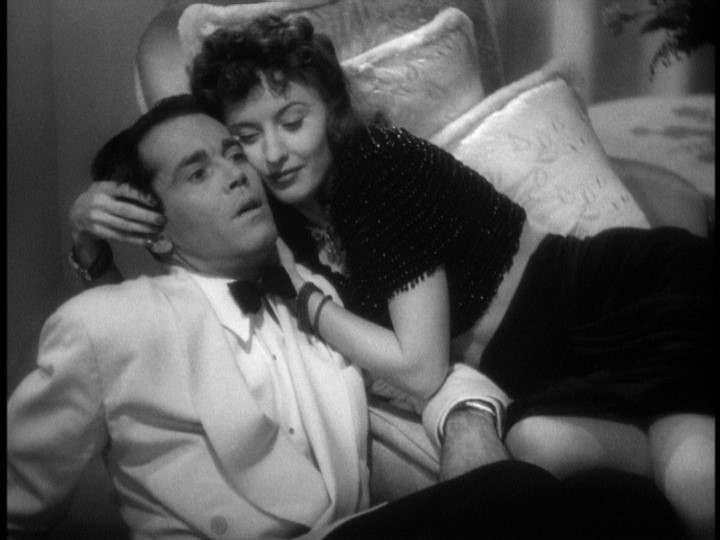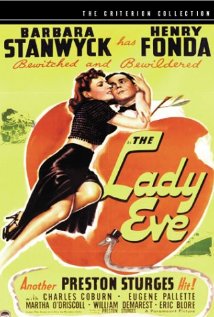Written and directed by Preston Sturges
USA, 1941
“You see, Hopsie, you don’t know very much about girls. The best ones aren’t as good as you probably think they are and the bad ones aren’t as bad. Not nearly as bad.”
In Preston Sturges’s The Lady Eve, professional swindlers, Harry Harrington (Charles Coburn), his daughter Jean (Barbara Stanwyck), and friend Gerald (Melville Cooper) set their sights on Charles Pike (Henry Fonda), a socially awkward heir to a prosperous Connecticut brewery. They all meet on a ship, as Charles returns home from studying snakes in the Amazon. They con Charles, by playing cards with him, and losing to gain his trust. It all seems dandy, until Jean falls in love with Charles. When Charles discovers who Jean really is, he leaves her. Angry for revenge, Jean pretends to be British noble, Lady Eve, to gain acceptance into Connecticut society and make Charles fall in love with her again.
The Lady Eve is all about the game of romance. Jean has a great monologue at the beginning of the film that really shows this game in action. While sitting at a dinner table, she narrates as various women approach Charles, in an attempt to gain his attention (“Every Jane in the room is giving him the thermometer and he feels they’re just a waste of time”). She studies Charles. What makes him tick? Is he self-conscious? What kind of woman would he like? All of this is for the purpose of conning him, which she does rather well. It also shows how love (and ultimately marriage) can be a façade.
When Jean and Charles ultimately fall for each other, their love is trivial. They say that they love each other, but do they really know each other? Sturges’s answer seems to be no. The viewer has witnessed Jean and Charles alone together, flirting, and discussing their ideal partners. But there has been no true connection, an understanding that comes from knowing another person inside and out. Charles and Jean’s love mocks the nature of romance in its contemporary films.
The next hand of the game plays out, when Jean pretends to be Lady Eve. Charles recognizes her, but is easily duped into believing that she is someone else. In his mind, Eve could not be lying. Once again, he falls into this trap of trivial romance, and proposes to Eve. The proposal scene marks another moment when the viewer notices Sturges’s view of romance and marriage. The words Charles uses in his proposal to Eve are nearly identical to those he used while proposing to Jean. Love exists on the surface, and the film makes a joke of this towards the end, as Eve jokingly reveals all the men she’s supposedly been with to Charles.
Sturges’s exploration of relationships, love, and marriage in The Lady Eve is way ahead of its time. This makes the film both entertaining to watch and fascinating to dissect.
— Karen Bacellar



